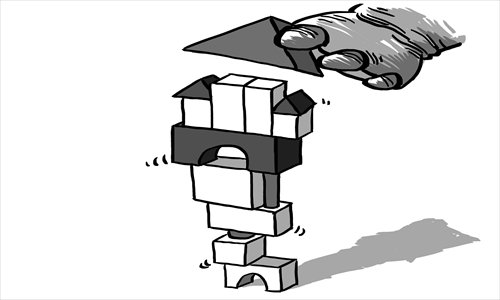Democracy alone won't modernize India

Recently I hosted a backpacker from China visiting Bangkok. She started to look for cheap airline tickets as soon as she received her India visa. Finally she booked a flight from Bangkok to Chennai.
"What does Chennai look like?" She asked me. I told her it's the fourth largest city in India. In the words of locals, Chennai is the "Shenzhen of India," it is the manufacturing center of the country.
Nevertheless, Chennai is much less well known in Asia than Shenzhen. This is related to the position of India's manufacturing industry in both Asia and the world at large.
Talking of India and China, Indian scholars often prefer to use the labels "the biggest democratic country" and "the biggest authoritarian country." In my eyes, it might be more accurate to describe India as "the biggest service country" and China as "the biggest manufacturer."
Some believe that India, with a more flexible political system, will catch up with China sooner or later. It sounds like the fable of the Tortoise and the Hare, which we've heard a thousand times.
But they forget that no matter which development path they choose, developing countries like India and China have to experience certain stages, rather than simply jump over them.
Across the world, there is no single poor country that can develop through service industries. Manufacturing growth is indispensable, especially for populous countries like India and China.
Without development in manufacturing, neither India nor China could address the problem of employment and improve service industries.
It is manufacturing, rather than democracy, that has the key gap between India and China. Generally, industry is divided as follows: Primary industry includes agriculture, forestry, animal husbandry and fishery, secondary industry includes industry and construction, and tertiary industry mainly refers to service industries.
Primary industry makes up 10.2 percent of China's GDP, secondary industry 46.9 percent and tertiary industry 42.9 percent, whereas the numbers in India are 18.2 percent, 26.8 percent and 55 percent.
In 2010, India's manufacturing grew by a mere 5.1 percent, which was lower than the world average of 6.5 percent and lagged way behind the Chinese level of nearly 15 percent.
Superficially India's economic structure seems better than China's, because it's more similar to a developed economy. Normally in a developed economy, tertiary industry makes up two-thirds or even more of overall GDP.
However, India's service industry is built upon low-level growth of primary and secondary industries, and inevitably appears low-level too.
There are various problems in India's service industries: many workers are self-employed, the quality of services is poor, legal regulation is lacking, and temporary workers don't have basic protection of their rights.
Similar problems are quite prevalent in Southeast Asian countries too. As a result, many believe that such a model of development could probably let people eke out a basic living, but will never make them rich. Can street peddling help create a modern country?
The experience of developed countries shows that service industries can grow only when people's income achieves a certain level. The development of India's service industries, led by information technology, will not address the country's increasingly prominent problems in employment.
If the colossal agricultural population cannot enter manufacturing industry, people's income will hardly raise. This has become a bottleneck for India's economic growth.
In this regard, the democratic system that Indian scholars are very proud of becomes a big obstacle for India's manufacturing development. Here is a typical example. In India, bills concerning power stations or other pieces of infrastructure are often repeatedly postponed because of wrangles among various interest groups.
Few foreign investors would like to invest or build a factory in places, where roads appear shabby and power failures are frequent, no matter how democratic the country is.
The author is a senior editor with the People's Daily. He's now stationed in Bangkok. dinggang@globaltimes.com.cn